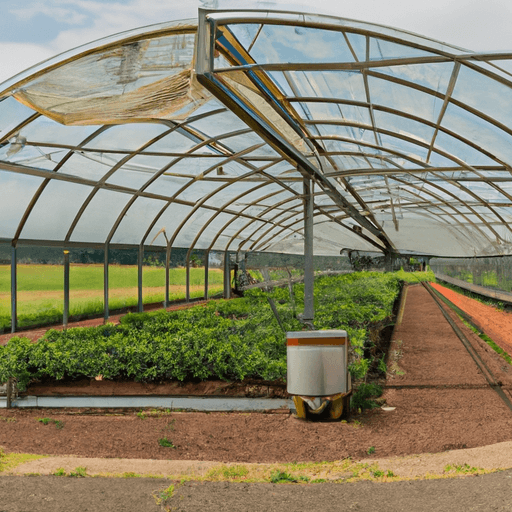Exploring the Impact of Global Climate Change on Urban Agriculture
Urban agriculture has been an integral part of cities for centuries, providing fresh, nutritious food to local communities while also playing a role in building more sustainable communities. However, global climate change is now having an increasingly detrimental effect on urban agriculture, with increasing temperatures, changes in precipitation, and extreme weather events all impacting the production and management of urban agriculture.
Impacts of Temperature Increase
The most apparent impact of global climate change on urban agriculture is the increasing temperatures. Higher temperatures can lead to increased water evaporation, which can lead to drought conditions and soil degradation. In addition, higher temperatures can also increase the risk of heat stress, leading to reduced yields and higher production costs. Furthermore, higher temperatures can also increase the risk of pests and diseases, as some pests and diseases thrive in warmer climates.
Changes in Precipitation
The changing climate is also leading to changes in precipitation patterns. These changes can lead to either too much or too little rainfall, leading to either flooding or drought. This can have a major impact on urban agriculture, as too much or too little water can lead to reduced yields or increased production costs. Furthermore, changes in precipitation patterns can also lead to higher levels of soil erosion, as heavier rainfalls can lead to higher levels of runoff.
Extreme Weather Events
Extreme weather events such as heat waves, droughts, and floods can also have a major impact on urban agriculture. These events can lead to reduced yields and higher production costs, as well as increased risk of pests and diseases. In addition, extreme weather events can also lead to physical damage to urban agricultural infrastructure, as well as increased levels of soil erosion.
Potential Solutions and Strategies
In order to mitigate the impacts of global climate change on urban agriculture, there are a number of potential solutions and strategies that can be implemented. These include the use of drought-tolerant crops, water conservation techniques, and the use of climate-smart farming techniques such as mulching and crop rotation. In addition, urban farmers can also look to implement renewable energy technologies such as solar photovoltaic systems and wind turbines to reduce their reliance on fossil fuels.
Conclusion
Global climate change is having a major impact on urban agriculture, with increasing temperatures, changes in precipitation, and extreme weather events all impacting the production and management of urban agriculture. However, there are a number of potential solutions and strategies that can be implemented in order to mitigate the impacts of global climate change on urban agriculture. In addition, urban agriculture can also play an important role in helping to create more sustainable communities.



















Comments
Leave a Comment